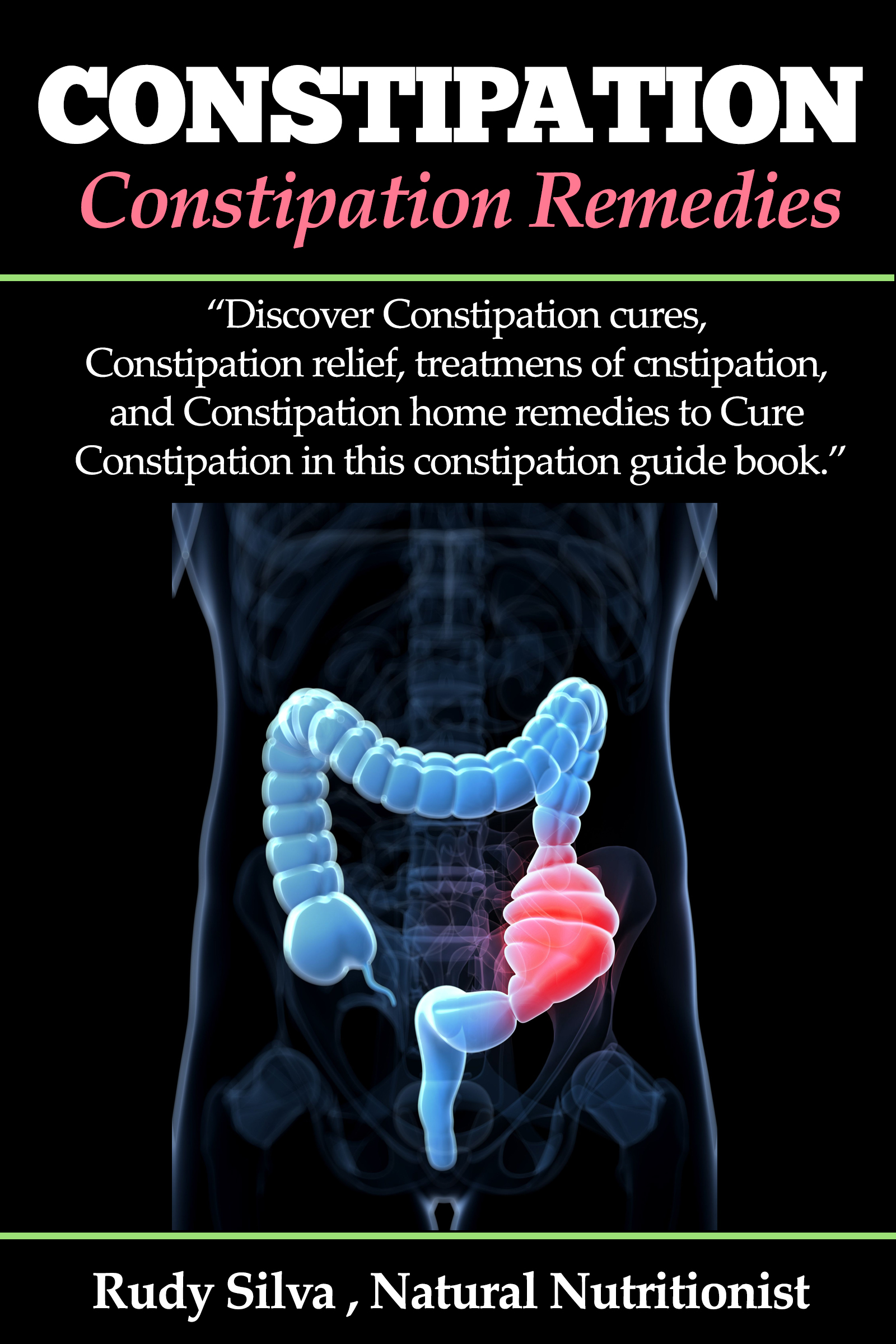Herbal Constipation Remedies Your Mother Didn’t know about-1

Herbal Remedies
Herbal laxatives help to promote bowel movements and relieve constipation. They remove food and toxic build up along your colon walls. When used in combinations, more than one herb, herbs provide nutrients and substances that help to feed and tone your colon walls and at the same time move fecal matter out through the rectum.
Strong Herbal Laxatives
Herbal laxatives can be weak, moderate, or strong. Strong laxatives are called cathartics or purgatives and are used when you have a severe case of constipation. The strong herbs are Aloe, Buckthorn, Cascara Sagrada and Senna.
They work by stimulating or irritating your colon wall nerves which promote a strong peristaltic movement.
Care must be taken when using strong laxatives since they have an irritating effect on your colon walls and some time can be painful and griping. As with drugstore laxatives, these strong herbs can create a lazy colon requiring you to use them over and over to have a bowel movement.
You will find some herbs mixed in with drugstore laxatives.
Weak and Moderate Herbal Laxatives
The best herbal laxatives to use are those that promote digestive juice secretions and which activate a bowel movement. Moderate herbal laxatives are herbs like licorice,
Wahoo, Yellow Dock, Balmony, Barberry, Dandelion Root, flax seeds, and psyllium seeds.
Some herbal combinations are listed below that combine weak, moderate, and strong herbal laxatives. These combinations provide the benefits of both herbs and reduce the strong effects of the individual herbs.
Preparing Herbal Teas
When preparing an herbal tea, called an infusion, it is best to only use glass, porcelain-lined or stainless steel pot with a cover. Boil distilled water, then, remove the pot from the stove. Do not use a microwave to heat your water. Microwaves change the electrical characteristics of water.
Place the herbs into hot water and stir. Cover the pot and let it sit for 5-30 minutes. The longer herbs sit in the water the stronger the tea becomes. After the tea cools a bit, strain it and it is ready to drink. If the tea is too bitter for you, you can add a touch of honey.
Use one teaspoon to one tablespoon of mixed herbs to 1 ¼ cup of distilled water.
Health Alert: If you are pregnant, do not use any of the herbs listed in this chapter, since they are designed to promote contractions in your colon and surrounding areas.
Children’s Herbal Dosage
When giving children herbal products, use more care. Give a reduced amount based on the adult dosage. A good reduce amount is 1/3 of the adult dose.
Children’s Age Herbal Dose
10-14 years ½ adult dose
6-10 years 1/3 adult dose
2-6 years ¼ adult dose
Method 25: Licorice Root
Licorice root has a mild laxative effect. It is good for ulcers and inhibits the growth of harmful viruses. It has high sugar content, so diabetics should use it with caution.
Health Alert: Licorice root stimulate the endocrine system to use potassium and sodium at a faster rate. So it would be wise to be using Alkalife in your drinking water when using licorice.
Licorice may also lower testosterone levels in men. Men suffering from impotence, infertility may want to avoid this herb.
Licorice makes your body hold water. Do not use Licorice if you have high blood pressure, are pregnant, or use corticosteroid drugs. Licorice root may increase the side effects of these drugs.
If using digoxin, or diuretic drugs, do not use licorice root since it pushes potassium out in the urine.
DEGLYCRRHIZINATED, DGL, may be O.K. to use with this drug, but check with your doctor to make sure.
Prepare 1 cup of tea using one tablespoon of licorice root. Drink 3 times each day.
Method 26: Anise seed tea
Anise seeds produce tea that can improve your digestion, which helps to reduce constipation. Anise seed tea is also good for improving memory, brain activity, and overall body health.
Take two tablespoons of anise seeds and put them into a coffee grinder. Press the start button for 2-3 second just to break up the seed lightly.
Make a tea with these seed as follows:
- Boil 1 ½ cup of distilled water in a glass pot. Pull the pot off the stove and put the seeds into the water and cover the pot.
- Let the seeds sit in water for 10-15 minutes to make a good strong tea.
- Drink one cup of this tea first thing in the morning
Method 27: Alfalfa Tea
Alfalfa helps to relieve constipation. It is rich in fiber, minerals, and chlorophyll. It is helpful in improving gastrointestinal function.
Health Alert: Warfarin and alfalfa interaction – Alfalfa is a high source of vitamin K, which helps the blood to clot. This has the opposite effect of the drug Warfarin, which helps to thin the blood to avoid clotting. If you are under a doctor’s care and using Warfarin consult your doctor before using Alfalfa herb.
Alfalfa has many minerals so it is considered an alkalizing food. It contains C, E, K, and B vitamins making it one of the best herbs for building the body back to health.
Since alfalfa helps reduce infections, it is useful in infections that occur in your colon and throughout the body.
Prepare a cup of tea, using a tablespoon of alfalfa leaves. Let sit it for 10 –15 minutes. This tea has a strong grassy taste and you may want to add a little bit of honey or lemon to reduce its strong taste.
Elderflower
Drink a tea of elderflower daily to relieve constipation
Chickweed
Drink 1 cup of chickweed every 3 hours. Do this until you have a bowel movement.
Method 28: Chinese Rhubarb
Chinese rhubarb, rhubarb, turkey rhubarb has been used for many decades to relieve constipation in China. It has a strong purgative action – it encourages strong laxative stimulation. It should be combined with other herbs, which reduces its purgative strength.
Health Alert: pregnant women should not use Rhubarb.
Rhubarb, Ginger, licorice Infusion
For severe constipation, prepare an infusion of,
- 1 teaspoon of rhubarb powder
- 1/4 teaspoon of ginger root
- 1/4 teaspoon of licorice root
- drink 1/2 cup of this infusion and over a few days increase it to a cup
Bentonite
Bentonite is clay from volcanic ash. It is used to cleanse your colon walls and can be used as a laxative. You will see it as an ingredient in some natural laxative formulas.
Method 29: Butternut Root Bark
Butternut root bark is considered one of the safest laxatives. This following formula is a gentle but effective laxative herb combination.
- Butternut root bark
- Cascara sagrada bark
- Rhubarb Root
- Ginger root
- Licorice root
- Irish moss
- Cayenne
This combination, with butternut, is listed in a book called, The Scientific Validation of Herbal Medicine, 1986, by Daniel B. Mowrey, Ph. D where Mowrey says,

“This combination is due to the effectiveness of Butternut Root Bark – a mild and effective laxative – and Cascara Sagrada – one of the most effective herbal laxatives around and in addition helps to return the natural tone of your colon. Ginger Root contains an oil called Ginerol which helps to bind the other herbs together and deliver them into your colon which they can assist in normalizing your colon.”
Chamomile tea is often used as a relaxant and is useful in reducing tension, which can lead to a tight colon. It has a gentle laxative action and helps in digestion.
Drink one cup just before bedtime.
Method 30: Cayenne
Cayenne is effective in producing peristalsis in your colon by aiding in digestion and stimulating elimination. It can be used regularly and when needed for constipation. Cayenne pepper is known to help thin the blood. So, it is good for improving blood circulation.
Cayenne is available in capsules of different strengths, from 5,000 heat units (HU) to 100,000 and even higher.
In addition, cayenne, when used with other herbs, helps to deliver these herbs more efficiently to where they are needed in the body.
Health Tip: Start with one capsule of 40,000 HU and always take it after you eat. You will feel a hot or slight burn feeling in the upper stomach and that’s when you know its working. The feeling I get is like when I get heartburn. This burning sensation will pass as your body gets used to you using cayenne.
Health Alert: Do not use cayenne seeds, as they can be toxic. If you are pregnant or breastfeeding do not take cayenne supplements. Use cayenne only as showed on containers and only as capsules.
Health Drug Alert: Cayenne has the ability to block the ulcer-producing effect of NSAIDS. It also has shown to increase the body’s absorption of theophylline, a drug used to treat asthma.
In his book, Left for Dead, Dick Quinn tells how Cayenne pepper saved his life after coronary bypass surgery failed to restore it. In this book, Shannon Quinn, say,

“One of the most effective stimulants, mostly, cayenne targets the digestive and the circulatory system. Cayenne regulates blood pressure, strengthens the pulse, feeds the heart, lowers cholesterol, and thins the blood. It cleanses the circulatory system, heals ulcers, stops hemorrhaging, speeds healing of wounds, rebuilds damaged tissue, eases congestion, aids digestion, regulates elimination, relieves arthritis and rheumatism, prevents the spread of infection and numbs pain.”
Use the recommended dose shown on the bottle of cayenne you use.
You can also add cayenne pepper into other foods. Add cayenne to soups, salads, and other food you like.
In soups or salads break open a cayenne capsule and mix it in. You can add 1 – 2 capsules but first start with 1/4 or 1/2 capsule so you can get used to the hot taste. I started with ¼ capsules and the soup was hot but tasty. When I finished my soup I swallowed the remaining ¾ full capsule with water.
If you are pregnant, it is considered safe to use cayenne.
Web Link for The cayenne pepper formulation created by Dick Quinn.
http://www.cayennecompany.com/catalog/heartfoods/
Method 31: Cascara Sagrada
Cascara Sagrada comes from the bark of the buckthorn tree. It stimulates your colon to produce stronger contraction than normal. It can work on the most difficult cases of constipation.
It is one of the best herbs with a strong laxative effect. It will be found in many herbal combinations that are mixed for constipation. Cascara has Chrysophanic acid, which stimulates your colon wall to produce peristaltic action. Cascara also contains a chemical called emodin, which controls the strong action of Chrysophanic acid thus producing a balanced laxative effect.
If you use cascara in an herbal mixture, do not use this mixture for more than thirty days. Then take a rest from it. Do not use Cascara in large amounts and for long periods since it can cause intestinal distress and become habit-forming.
Cascara Sagrada also stimulates secretions from the liver, gallbladder, pancreas, and stomach. These secretions give Cascara additional laxative effects.
Health Alert: Do not use Cascara Sagrada if you have irritable bowel syndrome, hemorrhoids, or ulcers. Use
Cascara for a limited time. It can become habit-forming and, if used for an extended time, it can increase the risk of colon cancer. Its use also causes you to lose potassium with each bowel movement.
If you have liver problems do not use cascara sagrada full strength. Use it in combination with other herbs. Cascara is known to put a strain on the liver.
You can take Cascara as a single herb. As a single herb, it can cause cramping and nausea. However, I recommend you used it with other herbs. In an herbal combination, the combination can detoxify your colon, notify your colon walls, cleanse the blood and produce other synergistic actions.
In Michael Murray, N.D., book called The Pill Book Guide to Natural Medicines, he talks about the drug interaction of cascara sagrada,

“Cascara and other stimulant laxatives may decrease absorption of other drugs that pass through the gastrointestinal tract. If you are currently taking an oral medication, talk to your pharmacist or doctor before self-medicating with cascara. Cascara may potentiate the action of digoxin and other heart medications due to potassium depletion. The use of cascara with thiazide diuretics and corticosteroids may further decrease potassium levels.”
Recommend dose for the cascara, as a single herb, is 350 – 1000mg just before bedtime.
Use 1-4 cascara powder capsules a night, but do not use these capsules for more than 10 days. Start with 1 capsule night and increase the amount each day until you get results you want.
For a laxative tea, use one teaspoon of cascara bark in 3 cups of boiling water for 30 minutes. Drink 1-2 cups of tea just before bedtime after it has cooled to room temperature.
Method 31: Dandelion
Dandelion has a laxative action and helps to resolve mild cases of constipation and stomach aches. It also has a blood cleansing effect and helps to detoxify the liver kidney, gallbladder, pancreas, and the stomach.
Use 1 cup of Dandelion tea, with a touch of honey, 3 times each day.
Health Drug Alert: If you have problems with your gallbladder in any form, it is best not to use dandelion. It has a detoxifying effect on the gallbladder encouraging bile flow.
Recommend dose is 200-250mg each day.
Method 32: Senna
It is known that Egyptians used senna tea to relieve constipation. This tea is used for medium forms of constipation. It is the chemicals anthraquinones that provide its strong action on your colon walls. It is readily available in health food stores or on the Internet.
Only use senna for a short time, 1- 1½ week. It is not healthy to use it for a long time since its action moves fecal matter through your colon quickly. This quick action prevents absorption of nutrients by your colon depriving you of necessary minerals and vitamins.
Health Alert: Use senna only in amounts that produce the required bowel movement and stool softness to relieve your constipation. Start with small amounts and increase your amount slowly.
Senna is sold Over-the-Counter under the name Correctol®, ExLax®, Senokot®, and Smooth Move. Senokot also contains docusate sodium – a stool softener – an added benefit when hard, dry stools may cause discomfort.
Seena Tea
You can also prepare seena tea as follows:
Buy some seena tea at a health food store. Place a tea bag into 1 ½ cups of distilled water and steep. Then, add the peel of a whole red potato. Also, add a couple of slices of potato meat. Add to this, a teaspoon of wheat or oat bran and flax seed.
Simmer this combination, strain it and drink the liquid. This will help some of the more difficult cases of constipation. Remember the longer you simmer this combination the stronger the tea will be. Start with 5-10 minutes and then work up to 15-20 minutes but you need to experiment with the time.
When you drink seena tea, drink only 2-3 oz. at a time and drink it only after it has cooled down. It has less of a cramping action when you drink it cool.
Seena Tea with Mint
Here is another seena tea you can prepare.
- 1 teaspoon of Seena tea leaves
- 1/2 teaspoon of peppermint leaves
- Boil 8 oz of distilled water, turn the heat off and stir in the herbs. Turn the heat off and cover the glass container. Let the tea simmer for 3-10 minutes
- Add honey to improve taste and some powered vitamin C if you have it
Health Tip: Look for formulas that have a small amount, 1/10 of a part, of fennel, anise, or ginger to reduce any cramping that might occur with seena.
Health Alert: Do not drink seena tea or capsule if you have any type of colon disease, stomach pain, diarrhea, or are pregnant.
Senna Pods are milder than the leaves since they do not contain resin. It is the resin in the senna leaves that causes griping in your colon.
If available, use around 8 pods. Heat some distilled water. Place the pods into the water for 5-10 minutes. Strain the tea and add 3-4 dried prunes or chopped prunes. Let cool and eat the prunes during the day or drink and eat a few prunes just before you go to bed. Drink only a couple ounces of the senna liquid at one time. If cramping or griping occurs, reduce the amount of tea you drink.
Method 33: Psyllium
Health alert: If you have asthma, do not take or use psyllium. Some people with asthma have had allergic reactions to psyllium and the powder from psyllium can cause an asthma attack.
Some you may be allergic to psyllium. If you are, you may become constipated or develop dark areas under your eyes.
Psyllium is the fiber part of seed husks from plantain. It is high in a soluble fiber that is called mucilage, so it absorbs water and becomes bulky. It contains almost no insoluble fiber, yet it acts like it has both soluble and insoluble fiber. Stomach enzymes do not easily breakdown psyllium, so it moves into your colon like insoluble fiber.
In your colon, psyllium activates peristaltic action and helps to clean your colon of any stagnation that has occurred there. By adding moisture to dry hard fecal matter, psyllium helps to move fecal matter through your colon. As psyllium seeds bulk up in your colon, they push against your colon walls stimulating peristaltic action. The soluble fiber in psyllium provides food for good bacteria, which helps them to multiple.



